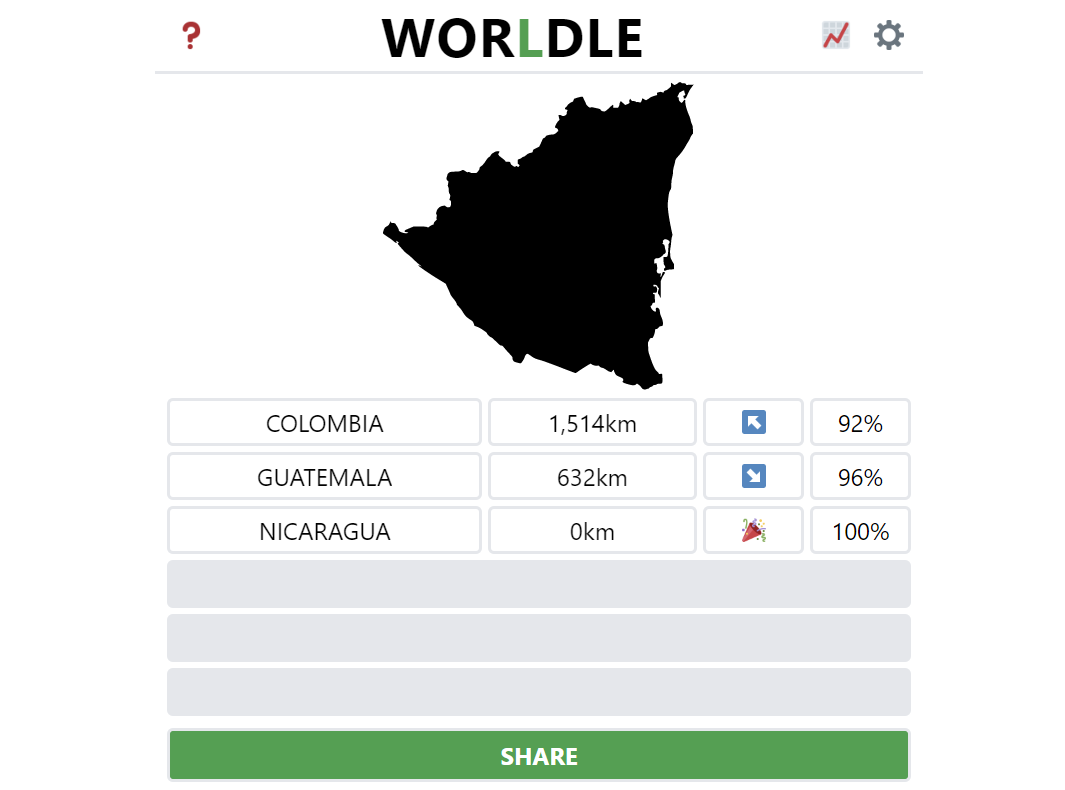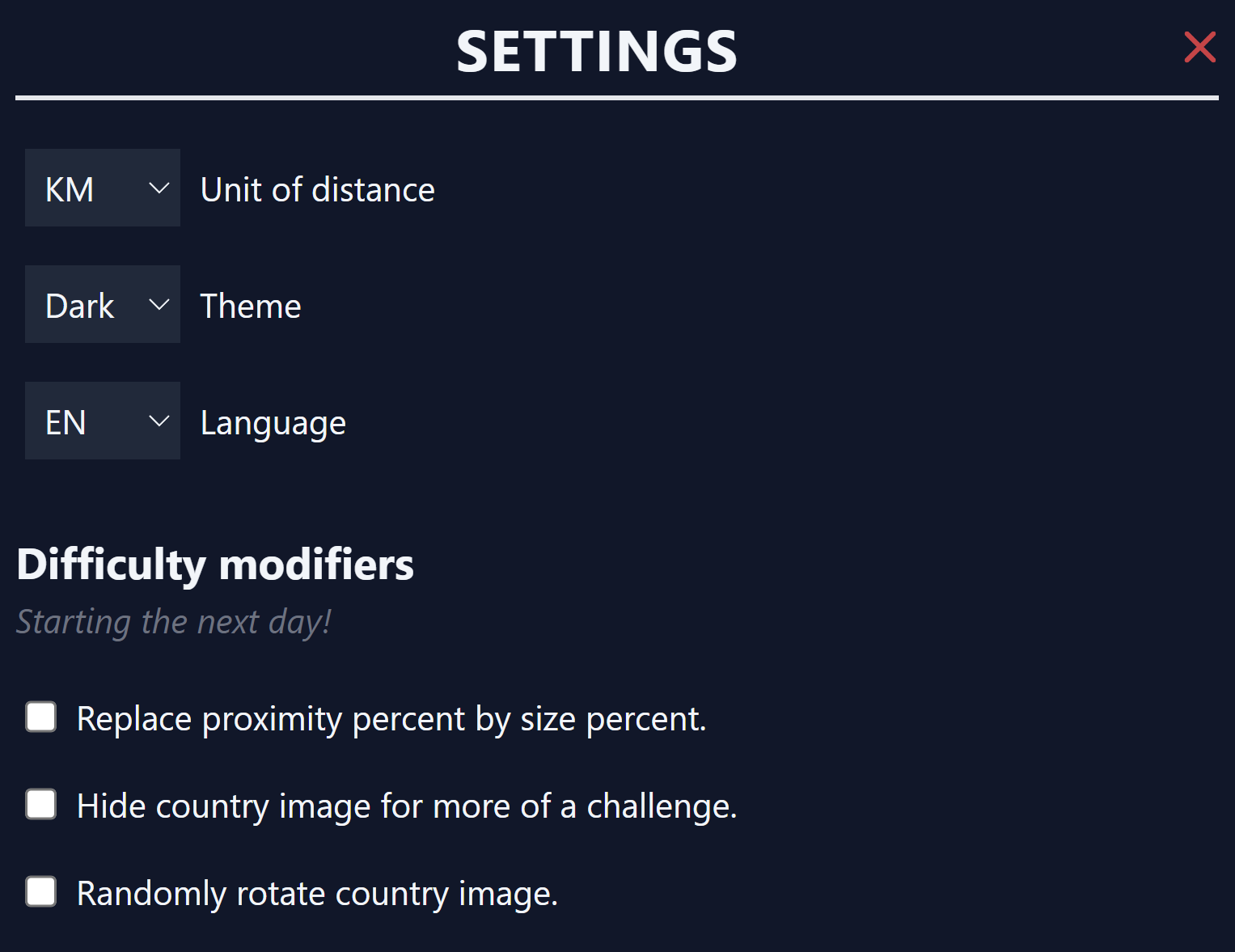From the concept introduced by hit word-guessing game Wordle, the brainchild of Josh Wardle — many spinoffs have emerged from the concept, and Worldle is a particularly great example. In this case, Antoine Teuf, the 31 year old French developer behind it, aims to challenge your knowledge of geography. It actually presents a harder challenge than you might think.
Much like Wordle, Worldle features daily challenges, but in this case you must figure out the name of the country whose silhouette is shown on-screen. The player gets 5 guesses and after each guess the direction and proximity to the target country is indicated. As per usual Wordle fashion, Worldle has closer guesses in green, and moderately close ones in yellow. There is even a proximity percentage bar to help narrow down your target with pinpoint accuracy.
As a geography nerd and someone who has traveled a fair bit, I honestly thought my first foray into Worldle would be simpler than most. How wrong I was. Whilst I did manage to narrow it down to the continent in the first guess and subsequently a closer field of range in the next two guesses — it seems Worldle had me stumped with many of the smaller territories and islands dotted around the globe.
Whilst not all of the daily challenges were like this, they still presented a degree of difficulty — often they were countries whose names I knew of, but not their geographical outline. This broadened my knowledge of various countries, and refreshed my knowledge of a few others along the way.
Worldle supports sharing your results, much like Wordle — and it gave me a sense of accomplishment far greater than sharing Wordle on my various social media feeds. According to a piece by the Washington Post, Teuf was surprised when his side project blew up to almost 950,000 daily users a couple of days past its launch.For those curious, Worldle randomly selects its countries from an open source map and based on codes set by the International Organization for Standardization.
Players can turn the difficulty up to eleven by either rotating the image by a certain degree or hiding the silhouette altogether. The latter meaning that one’s internal compass has to be in top shape.
That said, I found Worldle infinitely more enjoyable than Wordle — building on its foundation with a theme that can’t go wrong with most players was a surefire way for a good time. Still can’t get over the fact I couldn’t recognise the Cayman Islands silhouette today, despite it being internationally well-known.




Leave a comment